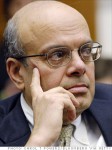The culture of a company is important to Warren Buffett, and culture is embedded in Berkshire Hathaway more than in most companies. Buffett has said that:
Your attitude on such matters, expressed by behavior as well as words, will be the most important factor in how the culture of your business develops. Culture, more than rule books, determines how an organization behaves.
This means that the successor to Buffett is likely to be someone who values the Berkshire culture, as well as having the skills and personality necessary for a chief executive. Buffett would want somebody who will be a custodian of Berkshire’s culture and his culture.
Ajit Jain, the CEO of Berkshire Hathaway Reinsurance Group, and who also currently heads Berkshire Hathaway Assurance Company, is seen by many as a carrier of Berkshire’s culture and a contender to take the throne after Warren Buffett. Known as “Superstar” to the Oracle of Omaha, Buffet has described Ajit Jain as being invulnerable to kryptonite, with the skill and audacity to turn risky insurance accounts into profitable ones.
Contents
Ajit Jain’s career
Ajit Jain was born on July 23, 1951 in India’s coastal state of Orissa. He graduated in 1972 from the Indian Institute of Technology (Kharajpur) with a Bachelor’s degree in Engineering, but his subsequent career confirms the comment by his former class mate, Ronojoy Dutta, that his interests lay more in economics and sociology than the subject he chose to enter. That said, his degree at the prestigious IIT created opportunities for him at the Tata Steel Company and IBM India, and a pathway to his future career.
Ajit moved to the United States in 1976 and received an MBA from Harvard Business School in 1978. He joined McKinsey and Co after graduating from Harvard, but went back to India in the early 1980s and, after his marriage to Tinku Jain, returned to the USA to work again for McKinsey. In 1986, despite knowing little about the insurance business, he left McKinsey to join the insurance operations of Buffett on the reference of his former boss at McKinsey.
Berkshire Hathaway’s reinsurance business
Jain has worked for Buffett ever since and now heads Berkshire Hathaway Reinsurance Group. Reinsurance involves insuring other insurers. Insurance companies often reduce their potential pay-outs on particular risks by off-loading some of that risk to other insurance companies and for this they pay a premium. Berkshire Hathaway Reinsurance specializes in this form of transaction, taking on part of the risk of other companies and charging fees for doing so. It is a complex and business and requires great actuarial skills in assessing and managing risk.
Jain has built up Berkshire’s reinsurance business and, under the umbrella of his leadership, his unit controls some seventy insurance companies around the world. Jain also set up the Berkshire Hathaway Assurance Company which insures state and municipal bond issues.
Jain is said to take on and profit from risks that his rivals avoid, including mega-catastrophe insurance coverage. For instance, he covered the Sears Tower in Chicago, America’s tallest building, even after September 11, and the Winter Olympics at Salt Lake City in 2002, which other insurance groups thought too risky. This has been a succcesful strategy to date but it is a high risk venture which could go horribly wrong. Jain, and Buffett, seem to believe that it is a calculated risk. And we understand that in policies of this nature, very high premiums are charged, coverage kicks in only for the excess over a certain amount of monetary loss, and loss caused by events involving weapons of mass destruction are excluded.
Buffett on Jain and Jain on Buffett
Jain is said by Buffett to have made more money for Berkshire than he has. Warren Buffett describes Jain’s role like this:
From a standing start in 1985, Ajit has created an insurance business with a float of $30 billion and [he has made] significant underwriting profits, creating a remarkable benchmark that no CEO of any other insurer has come close to matching.
Jain in turn has described Warren Buffett as ‘the best boss ever’ and feels that he has been extremely fortunate to work with Buffett, because Buffett is an easy and flexible person to work with. Jain has said of Buffett:
You get what you see. He is a very simple, down to earth person with very simple tastes.
Jain has stuck with Berkshire because he feels that he has won a giant lottery. According to Jain this lottery is not in terms of money; instead it is the opportunity to work for Warren, and no amount of money can substitute for working for a boss for whom you have the utmost respect. Ajit has also said that he prefers to stay with Berkshire because Warren Buffett has treated him more than fairly, and he has learned a lot from him.
Will Jain succeed Buffett?
Warren Buffett continues to praise Ajit Jain in his annual letters to shareholders and this is one reason why he is favored by many to be Buffett’s successor. His proven skills in assessing risk and making money for Berkshire, and Buffett’s belief that Jain has soaked up the Buffett culture, all add to his chances of getting the top job and carrying on the legacy.
There are however other candidates and it remains a strong possibility that there will be not one successor but several – Chairman, CEO, Investment Guru. Even if Ajit Jain does not become the successor to Buffett, it is certain that he will occupy a key position in the Berkshire group.




